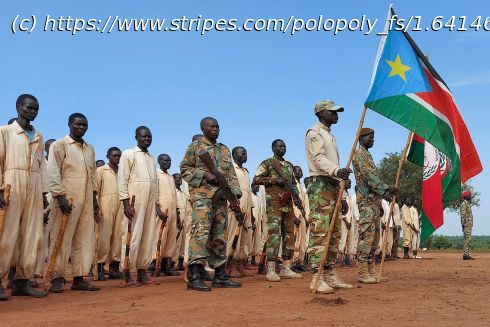Visits to a handful of camps found squalid conditions, with food supplies expired or stolen by corruption.
BOR, South Sudan — Here in crowded camps in South Sudan, former enemies are meant to be joining forces after a five-year civil war so they can help the shattered country recover. But they can barely find enough food. The Associated Press spoke to women, both former rebel fighters and government troops, who are among tens of thousands of people being trained as a unified security force. It’s meant to be a major step in the 2018 peace deal ending the war that killed nearly 400,000 people. Visits to a handful of camps found squalid conditions, with food supplies expired or stolen by corruption. With few sanitary products available, the women use random pieces of cloth, even strips of bedsheets, for their periods. While some seek informal work in nearby communities to get by, the threat of sexual assault — even by male trainees — makes others wary of venturing too far. “I’m describing the situation as disgusting,” said Nyaluel Makuei. The 36-year-old mother of seven said she has dedicated her life to serving her country, but she finds little support now. “Even if you get a piece of soap you still stink and smell bad,” she said. “Some of our sisters left the center because of that situation.” At times, she said, meals are just porridge mixed with salt to satisfy hunger because the camp’s supply of beans turned rancid. The women who once fought on opposing sides now identify themselves as members of South Sudan’s unified force, an effort to leave their past behind. But they are reminded of their country’s persistent troubles — insecurity, graft, poverty — at every turn. Some in the international community warn that South Sudan’s implementation of the peace deal is in peril. A United Nations panel of experts this year said the training camps host far fewer people than the goal of 83,000, and government soldiers make up a “significantly smaller percentage” than former rebel fighters. Most government forces remain in barracks elsewhere. “Many key commanders instructed their forces to remain outside of the security reunification process, retain their weapons and stand ready to re-engage in active fighting,” the U.






